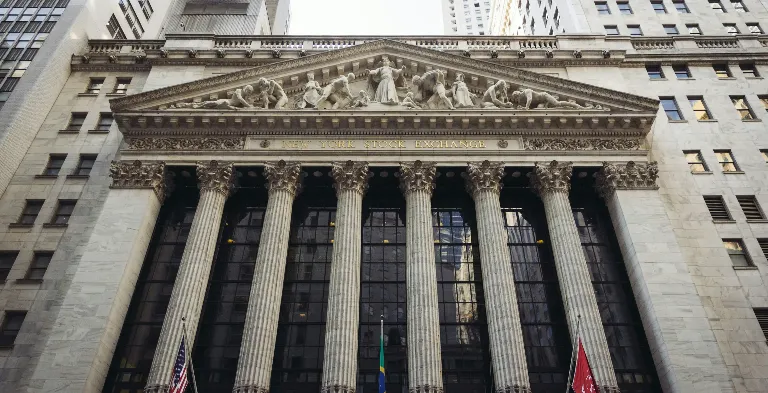The AI trade has taken a wobble in recent weeks. The sell off was accelerated by President Trump’s threat of further tariffs on China, however, there have been multiple warnings in recent weeks from top investors and even the Bank of England, that the AI trade is looking stretched and could cause disruption to financial markets.
David Einhorn, the investor who exposed the subprime mortgage scandal that caused the global financial crisis, said that the amount of capex spending on AI was ‘extreme’ and he questioned if the hyperscalers, who have pledged huge amounts to build out their AI infrastructure, had carefully laid out a return on investment plan or were pressing the trigger because they felt they had to. When David Einhorn speaks, it is worth taking notice.
The AI trade has taken a wobble in recent weeks. The sell off was accelerated by President Trump’s threat of further tariffs on China, however, there have been multiple warnings in recent weeks from top investors and even the Bank of England, that the AI trade is looking stretched and could cause disruption to financial markets.
David Einhorn, the investor who exposed the subprime mortgage scandal that caused the global financial crisis, said that the amount of capex spending on AI was ‘extreme’ and he questioned if the hyperscalers, who have pledged huge amounts to build out their AI infrastructure, had carefully laid out a return on investment plan or were pressing the trigger because they felt they had to. When David Einhorn speaks, it is worth taking notice.
Bank of England warns over tech stock exuberance
Likewise, the Bank of England’s financial policy committee warned that there was a risk of a sharp market correction due to the stretched equity market valuations, particularly for tech companies focussed on AI. They warned that a sudden correction could occur, and that the risk of spillovers to the UK financial system from global shocks is ‘material’.
So, should we all be rushing to adjust our portfolios and purge ourselves from overvalued AI stocks?
Before you take any drastic action, it is worth delving a bit deeper to see firstly, is there a bubble, and secondly, if there is one, will it burst and what could that do to stock prices and ultimately to your portfolio.
Stock market bubbles all start with a story …
All stock market bubbles start with a story, so the saying goes. Back in the late 1990s, the story was the internet, today, the story is Artificial Intelligence (AI). 25 years ago, the story was focused on how the internet would change the way we live and break new frontiers. The bubble burst, but the internet did exactly what people thought it would. The same is true today. AI promises to reshape industries, create productivity and change the way we live. Stocks have surged and AI is a major buzzword. If a stock has a link to AI, then it has been in demand over the course of this year.
A mere eight AI stocks are now worth $4.3 trillion, after a stunning run up since the April lows. Stocks that are directly linked to AI, either providing the infrastructure or hyperscaling to build AI capabilities, are overtaking former US stock market stalwarts. For example, these 8 AI stocks are worth 15 Coca Colas or 20 McDonalds.
AI financing deals raising some eyebrows
There are also concerns about circular financing, with AI behemoths like Nvidia taking stakes in their own customers, like Coreweave, the cloud computing company, in return for them using Nvidia chips. This is perfectly legal, but it does raise eyebrows.
Open AI, who makes ChatGPT, is so desperate for computing power, it engaged in a complex deal that will see it take a 10% stake in AMD, another US chip maker, which pushed up AMD’s share price by more than a third in a week. This is not normal, and it is no wonder that questions are being asked about the longevity of this trade.
Why we are not back in 1999 territory
However, talk about stretched valuations for AI stocks and the dotcom bubble, are misguided, in our view. AI companies like Nvidia, AMD etc, are well established, Nvidia was founded in the 1990s, and they produce huge amounts of revenues, something that didn’t happen back in the early 2000s and which ultimately caused the dot com crash.
For example, Nvidia currently has a 12-month forward Price to earnings ratio, a measure of how much the company is worth, of 33 times earnings, see chart 1. This is not particularly stretched, especially for a tech company. It is also lower than the P/E ratio of Rolls Royce, which is 39 times future earrings, although there is no concern that defence stocks are in a bubble.
Earnings season could highlight AI’s ability boost the bottom line for corporates
Q3 earnings will be a key test for the AI trade, but companies such as Nvidia are set to announce monster earnings once more, which could sustain the AI trade. Nvidia is set to generate $54bn dollars of revenues for last quarter, we’ll get their earnings update next month. Nvidia isn’t the only one generating strong revenues, AMD, which is much smaller than Nvidia, is set to generate $8bn dollars in revenue for last quarter. Huge revenues are to be expected when the AI hyperscalers like Microsoft and Amazon are pumping more than $300bn into AI infrastructure this year. This has also caused concerns; however, Microsoft is expected to report $75bn in revenues for Q3 when it reports its results later this month. Investors are hopeful that Microsoft’s results will show that its AI investments are paying off.
Why the tech stock sell off could boost the AI trade
The recent sell off in the AI stocks after President Trump threatened to put an extra 100% tariff rate on China, highlighted the impact political risks can have on this trade. In recent months, the AI trade was considered resilient to these risks, however, the sharp sell off after trade tensions between the US and China resurfaced, caused an abrupt end to the market’s months’ long AI stock binge. Interestingly, the sell off was temporary, and may boost AI stocks in the longer term. The short, sharp sell off earlier in October took some of the froth off the AI trade, which improved valuations and could set the scene for the next stage of this incredible rally.
Don’t talk yourself into a crisis
Concerns about the speed of the run up in AI stock price valuations are valid and should be considered by any investor who holds AI shares in their portfolios. Added to this, market rallies do tend to fizzle out at some stage. But we could be at risk of talking ourselves into a crisis. Also, you may adjust your portfolio for no reason and that comes with an opportunity cost.
It’s always easier to be a bear, but being a bull, holding your nerve and staying invested once you have a strong and well-diversified portfolio could pay off.
Chart: Nvidia and its P/E ratio, normalised over the last 12 months. As you can see, the stock price has accelerated as the P/E ratio remains stable, since earnings remain strong. This suggests that Nvidia is not overvalued.

Source: XTB and Bloomberg. Past performance is not a reliable indicator of future results.
Chart 2: Magnificent 7, YTD, Nvidia and Google are leading the mega cap tech stock pack.

Source: XTB and Bloomberg. Past performance is not a reliable indicator of future results.

Investing during a crisis: Strategies and Tips

US Presidential Election 2024: Kamala Harris vs Donald Trump. Which candidate is better for stock markets?

The Private Market Boom: What Every Investor Should Know About Private Markets
This content has been created by XTB S.A. This service is provided by XTB S.A., with its registered office in Warsaw, at Prosta 67, 00-838 Warsaw, Poland, entered in the register of entrepreneurs of the National Court Register (Krajowy Rejestr Sądowy) conducted by District Court for the Capital City of Warsaw, XII Commercial Division of the National Court Register under KRS number 0000217580, REGON number 015803782 and Tax Identification Number (NIP) 527-24-43-955, with the fully paid up share capital in the amount of PLN 5.869.181,75. XTB S.A. conducts brokerage activities on the basis of the license granted by Polish Securities and Exchange Commission on 8th November 2005 No. DDM-M-4021-57-1/2005 and is supervised by Polish Supervision Authority.


